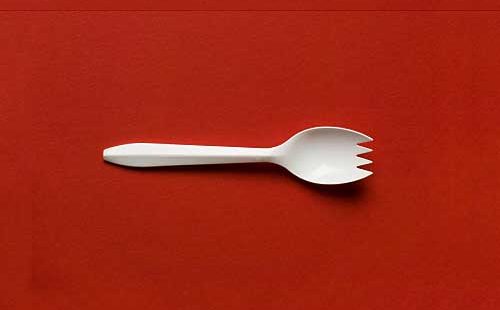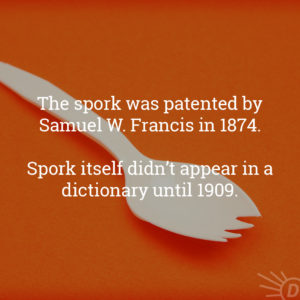spork
Spork is a hybrid word for a hybrid utensil with the round bowl of a “spoon” and the pointy tines of a “fork.”
The first American spork was patented by Samuel W. Francis in 1874. His original design also included a knife edge. (What would that word have been? Kniforkon?) Spork itself didn’t appear in a dictionary until 1909. If you feel like mixing up your diction, foon is also an accepted name for this portman-tensil.






















